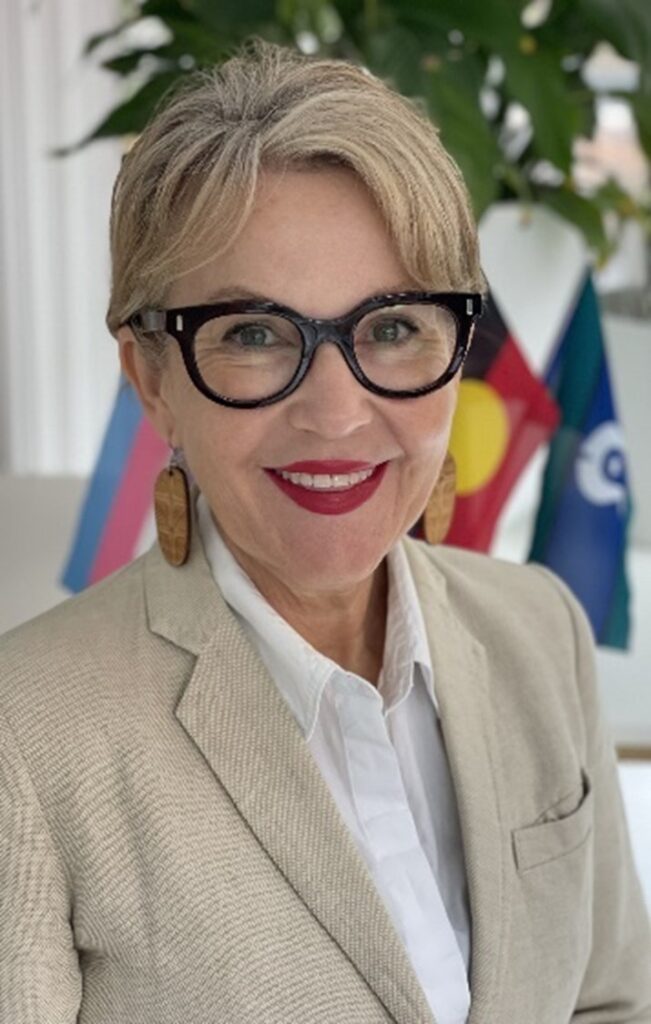
Dr. Rachel Pollitt
Rachel Pollitt is a coach within Gowrie Victoria’s consulting team. What she loves about early childhood education and care is that this is where it all begins, with the child, their voice and their rights.
Rachel is an expert in children’s play-based numerical understanding and completed her PhD in this field in 2018. Passionate about research in action, and practical ways to advance early childhood theory in practice, Rachel became a Research Fellow at the University of Melbourne’s REEaCh Centre and the EDGE Study, while also coaching for Gowrie Victoria.
Could you tell us about your experience as a Gowrie coach in Corangamite – what were the focus areas, and what happened during the coaching program?
Coaching across the Shire is inspiring – the team are so passionate, some providing ECEC for vulnerable children and families, some in isolated and remote areas, and some running mobile programs to meet the needs of their farming communities. Focus areas have included their QIP; Leadership and coaching; Trauma Informed Practice; and growing connections with families, community, and First Nations peoples. It is exciting to see the cohort’s continued growth, their community of practice and evolving connections across the Shire.
How did the coachee adopt what they learned in their practice?
By being brave, identifying goals and wrestling with their challenges, recognising habits, and reflecting on self-knowledge and awareness. By making small yet purposeful changes toward achieving their goal and being tenacious. Coaching over time also speaks to accountability and I am privileged to have worked alongside this team for over a year.
Late last year you presented at the ECA Conference. What were the topics you discussed, and what did you want attendees to take away from it?
Moira, Leanne, and I discussed a coaching approach to leadership. Takeaways for attendees were the impact, success, and embeddedness of Gowrie’s GROWTH framework in action, a coaching way of being, and how cultures of coaching can promote strengths and connection across teams. We discussed modelling a coaching way of being, and how it lifts the team, and by proxy the children they work with.
You are also a member of the Apiary Fellowship! Can you tell us what that involves and what you hope to get from it?
The Fellows convene three times throughout the year to explore how systems leadership can support innovation and sustained impact on shaping the future of early learning. How we show up for each other, collaborate, learn, and contribute to the ‘whole’ was a key focus for me, as well as systems change theory (YES!). This has been an amazing experience so far, and a great privilege to take part in this journey with such extraordinary people. We have engaged in deep thinking, learning and creative critical reflection. Thane Garvey Gannaway from the Wurundjeri Woi-Wurrung Cultural Heritage Aboriginal Corporation welcomed us to Country – “to be clear in our minds, and to be here with purpose”. We spent the afternoon on Country with Lachlan Buxton-Green, an Aboriginal Educator who connected us to each other and the place we were part of. Time changed, we slowed down, were present and receptive. Later that evening during ‘fireside canapes’ it was deeply meaningful to hear from Nicole and Alistair about their Apiary experience and for me a moment of connection to the ways of being and working within Gowrie. Still digesting and processing our time together and so grateful for the honesty and reciprocity of the Fellows. I hope to be part of something greater than the sum of myself when advocating for Nationwide EC reforms, policy change, and remuneration for the profession.


Why did you want to become a Gowrie Coach?
Because I believe in people, their capacity to fulfil their potential, and significantly impact the lives of colleagues, children, families, and communities.
What do you love most about being a coach?
Working alongside EC professionals – building trusting relationships, diving into the core of their aspirations and goals, facilitating conversations and asking powerful questions to promote inquiry and success. One of the most joyous moments as a coach is celebrating successes along the way, observing tangible change, listen to brilliant ideas and exploding light bulb moments.
Why should an educator consider receiving coaching?
We naturally grow and develop through life experiences, how we understand and interpret these experiences, and develop new knowledge can inform our professional practices. Life-long learning is real and at times can be challenging. Unpacking challenges or barriers to growth is profoundly rewarding – and coaching is the key. The joy of receiving coaching is knowing that it is confidential, your coach will create a safe space and facilitate a conversation which supports you to deeply engage in the coaching process. Coaching provides educators with agency and a framework to promote professional growth. Typically, we already have the answers within us – sometimes we just need a space, a trusting relationship with a coach, an evidence-based framework we can lean on and an open mind.
Gowrie Victoria offers tailored coaching support for early childhood services through the School Readiness Funding program. To find out more and enquire, click here.